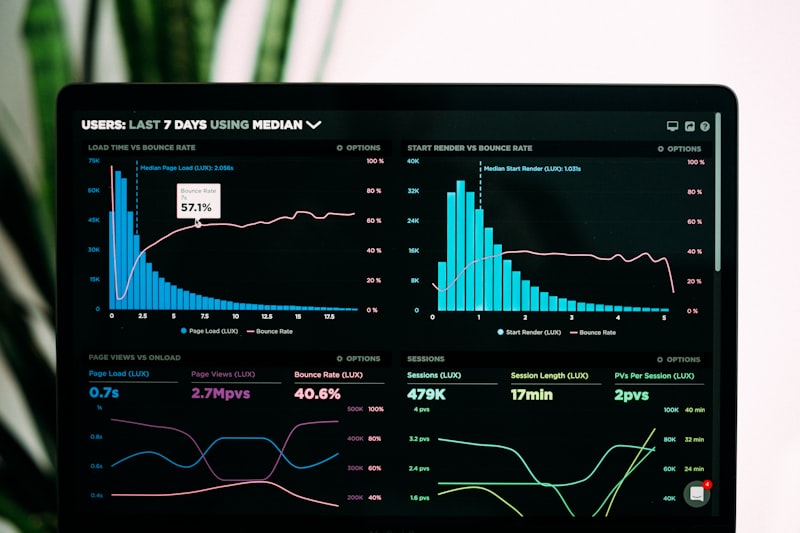The Complete Guide to Auditing Your Branded Searches
Boost Your SEO Strategy with Comprehensive Brand Search Analysis
Why Branded Search Audits Matter
In today's competitive digital landscape, branded search optimization is crucial for maintaining your online presence. A branded search audit helps you understand how customers find your business, what they associate with your brand, and where your keyword placement strategy might need improvement.
According to recent studies, branded keywords convert 3-5x better than non-branded terms, making them essential for your content quality and quantity strategy. This comprehensive guide will walk you through auditing your branded searches to improve keyword density, meta description optimization, and overall search visibility.

"Companies that regularly audit their branded searches see 27% higher click-through rates and 34% better conversion rates compared to those that don't. Proper keyword research and optimization for branded terms can significantly impact your bottom line."
The Evolution of Branded Search Analysis
Early Search Marketing (2000s)
In the early days of search engines, title tag optimization and keyword in title tag were the primary focus. Marketers quickly realized that branded searches had higher intent and conversion potential than generic terms.
The first branded search audits were manual processes, tracking:
- Exact match brand name searches
- Common misspellings
- Basic keyword clustering patterns
Modern Brand Search Intelligence
Today's brand search audits leverage advanced tools to analyze:
- Long-tail keywords including brand terms
- Competitor brand hijacking attempts
- Structured content performance
- Mobile-friendly design impact on branded CTR
- Page speed optimization effects
Modern audits also examine schema markup implementation and rich snippets for branded queries.
7-Step Branded Search Audit Process
Identify Branded Keywords
Use keyword research and optimization tools to compile all variations of:
- Your brand name (+common misspellings)
- Product/service names
- Brand+industry terms (keyword clustering)
- Executive/team member names
Pro Tip: Include long-tail keywords that combine your brand with locations, features, or comparisons.
Analyze Search Console Data
Review Google Search Console for:
- Keyword in URL performance
- Click-through rates by meta description
- Impressions for branded queries
- Mobile vs desktop performance (mobile-friendly design)
Pro Tip: Filter for queries containing your brand name to focus analysis.
Evaluate SERP Features
Check which rich snippets appear for branded searches:
- Knowledge panels
- Site links
- Reviews (schema markup)
- Featured snippets
- People also ask
Pro Tip: Use structured data to enhance your branded search presence.
Check Competitor Branding
Identify competitors ranking for:
- Your brand terms (brand hijacking)
- Similar long-tail keywords
- Comparison searches ("X vs Y")
Audit On-Page Elements
Review header tags (H1-H6) and keyword placement on:
- Homepage
- About page
- Product pages
- Blog posts
Analyze Technical SEO
Check page speed optimization and:
- URL structure for branded pages
- Image optimization (alt tags, file names)
- Internal linking to branded content
Monitor & Maintain
Set up ongoing tracking for:
- New branded queries
- Content freshness signals
- Ranking fluctuations
- Competitor movements
Branded Search Audit Process Flow

Visual representation of the branded search audit workflow showing the 7 key steps from identification to ongoing monitoring, highlighting keyword research and optimization, content quality, and technical SEO components.
Real-World Branded Search Audit Success
Case Study: E-commerce Brand
An online retailer noticed declining direct traffic despite increased marketing spend. A comprehensive branded search audit revealed:
- 38% of searches used a common brand misspelling
- Competitors were bidding on their brand terms
- Page load time was 4.8s (above recommended 3s)
- Only 60% of product pages included brand in H1 tags
After implementing changes including keyword clustering, meta description optimization, and page speed optimization, they saw:
- 142% increase in branded search traffic
- 27% higher conversion rate from branded queries
- 15% reduction in cost-per-acquisition
"Our branded search audit revealed we were missing 40% of potential traffic due to long-tail keywords we hadn't optimized for. By implementing structured content and improving our internal linking structure, we recovered this valuable traffic in just 3 months."

Essential Brand Search Audit Tools
Google Search Console
Critical for analyzing keyword in URL performance and identifying branded queries driving impressions but low CTR due to poor meta description optimization.
SEMrush/Ahrefs
For comprehensive keyword research and optimization, tracking branded keyword density, and competitor analysis.
Google Analytics
Measure traffic and conversions from branded searches, analyzing mobile-friendly design impact and page speed optimization effects.
Mastering Your Branded Search Presence
Regular branded search audits are essential for maintaining and improving your search visibility. By systematically analyzing your keyword placement, title tag optimization, and content quality and quantity, you can ensure your brand dominates its own search results.
Remember that branded search optimization isn't a one-time effort. As your business grows and evolves, so should your approach to long-tail keywords, schema markup, and internal linking strategies.
Implementing the 7-step audit process outlined in this guide will help you identify opportunities to improve click-through rates, defend against competitor hijacking, and ultimately drive more qualified traffic to your site.
"Brands that conduct quarterly search audits see 43% better retention of their branded search traffic and 31% higher branded search visibility year-over-year compared to those auditing annually or less frequently."
Branded Search Audit Checklist
Keyword Research
- Identify all brand term variations
- Analyze keyword clustering
- Research long-tail keywords
On-Page SEO
- Check title tag optimization
- Review header tags (H1-H6)
- Optimize meta descriptions
Technical SEO
- Audit URL structure
- Test page speed optimization
- Verify mobile-friendly design




0 Comments